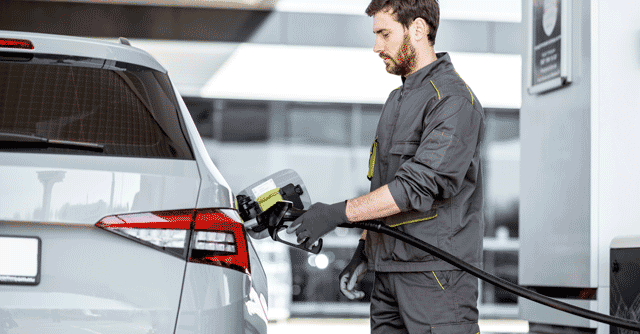
Startups seek to take FASTag payments beyond electronic toll collection


The Indian government’s FASTags system may have been introduced for electronic toll collection, but it is soon set to become the means for a variety of payments. Startups in the country are looking to take advantage of the FASTag infrastructure to facilitate payments in various commercial institutions, ranging from movie theatres to petrol pumps, and more.
For instance, Goa-based startup Numadic has been running pilots with oil companies Hindustan Petroleum and Indian Oil to use FASTags for fuel payments. The pilot for the project started in October last year, and according to the company has received a lot of traction from consumers.
“We are planning to expand to more petrol stations, fuel companies and banks. Real implementation will happen now as we move from proving the concept to scaling it across the country,” said Luke Sequeira, founder, and chief executive of Numadic,

Developed by the National Payments Corporation of India (NPCI), FASTags use a Radio Frequency Identification (RFID) chip mounted on car windshields, which stores vehicle and payment information. When a car approaches a toll plaza or petrol pump with an RFID reader, the chip is activated and the transaction is completed automatically.
For toll collection, the key benefit is that it keeps traffic moving and avoids congestion. However, the same benefits can translate to other areas as well.
“It has cut down queues significantly for parking as you don’t have to stop, collect a manual receipt, and then make payment,” said Amit Lakhotia, founder and chief executive of Park+, a Gururgam based startup, which is using FASTags at more than 15 malls in Delhi, Mumbai, Bengaluru, Coimbatore, Dehradun and Vadodara.

Lakhotia said that the company is aiming to expand FASTag payments at 40 more malls and 1500 government parking lots this year. Like Numadic, Park+ is also working on a pilot for fuel payments using these tags in the Delhi NCR region, though Lakhotia couldn’t confirm when the commercial rollout of the same will happen.
According to experts, systems like FASTag aren’t meant simply for toll collection anyway. India has enough global examples to follow as well.
For instance, in 2016, the Emirates National Oil Company (Enoc) decided to offer such payment services to all motorists who come to its petrol stations. The system had already been used for over a year at the time, but was available only for corporate customers. In 2016, the company decided to use Dubai’s Salik tag, which is a system similar to the FASTag, to allow anyone to fuel their vehicles.

Luxury carmaker Mercedes also offers drivers to pay parking fees in its vehicles in Germany using RFID chips. Globally, the system is often referred to as Pay by Car.
According to Ashutosh Sharma, vice president, and research director at Forrester Research, having a single standardized way of making payments across a variety of services “is a great win for the customers.” “They can certainly extend this architecture to include other services such as fuel stations, parking, and pretty much any use case that involves a vehicle,” he said.
Numadic’s Sequeira said that the company will be exploring payments in drive-in movie theaters and payments for challans as well. “If you look at all these payments in combination, we are looking at a market opportunity of $100 billion of FASTag payments. If you add insurance payments, the opportunity is even bigger,” he said.

That said, FASTags are far from a perfect solution right now. Consumers and businesses have both complained that the system doesn’t work as seamlessly as it should. These problems range from errors in reading the tags off moving vehicles, to consumers not loading money into their FASTag accounts.
"FASTags are only for deduction of payment, how you read FASTags from a stream of vehicles moving in a relatively haphazard way at fuel pumps is important. Also, most FASTags won't have enough balance for fuel payments,” noted Lakhotia.
Forrester’s Sharma warned that the key challenge that NPCI will face will be in extending this program to include several private entities securely and reliably and ensuring it is not abused. “This will mean they may need to change the payment process flow to include an explicit approval from the vehicle owner, among other modifications,” he said.

NPCI didn’t respond to an email seeking comments on these challenges and future use cases of FASTags by press time.
